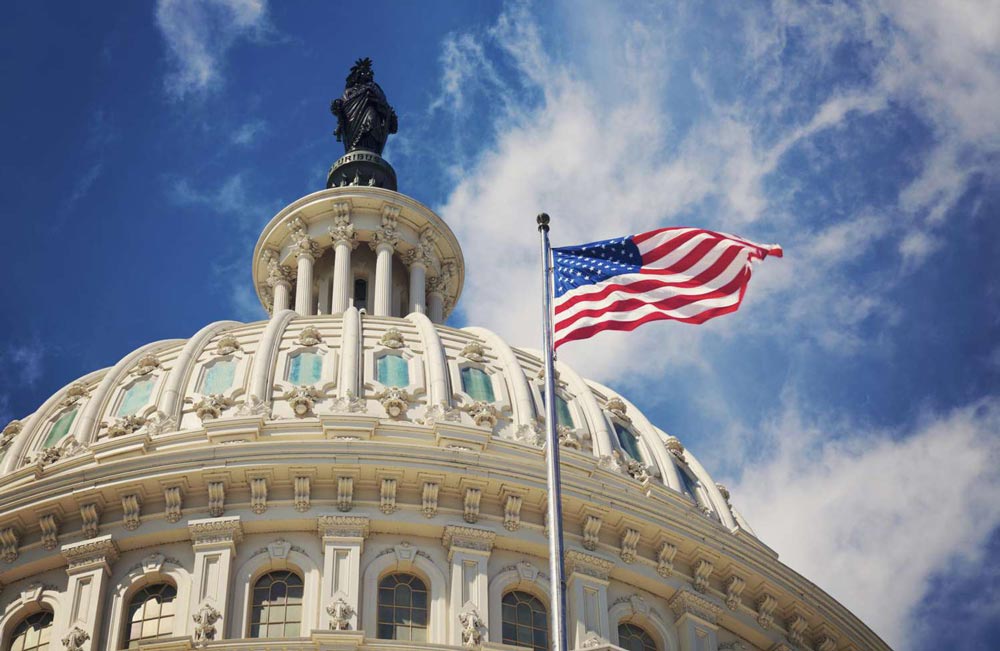In a last-minute effort to avert a government shutdown, congressional leaders on Tuesday evening introduced a short-term funding resolution to keep federal operations running through March 14, 2025. The bill, rolled out just days before the deadline, aims to prevent disruptions ahead of the holiday season and ensure continuity in critical services.
Key Provisions of the Funding Bill
The continuing resolution (CR) includes several notable measures designed to address immediate needs while deferring more contentious budget debates into the new year:
Disaster Relief: The bill allocates $100.4 billion to assist areas impacted by hurricanes Helene and Milton, including regions of western North Carolina and Florida. This amount aligns with President Joe Biden’s original request for disaster aid.
Support for Farmers: It provides $10 billion in economic assistance for farmers and extends the current farm bill by one year, ensuring stability for the agricultural sector.
Drone Threat Mitigation: A provision reauthorizes a Department of Homeland Security program aimed at countering drone-based threats. This comes amid growing public concerns over recent drone sightings and security risks.
Robert F. Kennedy Memorial Stadium: The resolution includes a unique provision granting Washington, D.C., control over the stadium, potentially paving the way for negotiations to bring the NFL’s Washington Commanders back to the city.
The Political Landscape
Congress is racing against the clock, with funding set to expire at midnight on Friday. Lawmakers are hoping to finalize the measure before adjourning for Christmas, Hanukkah, and New Year holidays. However, several procedural hurdles remain.
For the Republican-led House, this includes bypassing its customary 72-hour rule for reviewing legislation before a vote. Meanwhile, the Democratic-controlled Senate will need unanimous agreement to expedite the bill’s passage without delays.
The short-term measure introduces a new challenge for the incoming administration of President-elect Donald Trump. With the resolution expiring in mid-March, the next funding deadline will fall within Trump’s first 100 days in office, potentially diverting attention from other priorities, including cabinet confirmations and legislative agenda items like tax reform, immigration funding, and domestic energy policy.
Mixed Reactions
The CR has drawn mixed reactions from lawmakers across both parties. Some Republicans view the temporary measure as a necessary step to keep the government functioning while allowing their party to exercise greater control over long-term funding negotiations in 2025.
House Speaker Mike Johnson, R-La., faces pressure to maintain unity within his narrow majority, especially with conservatives in his ranks opposing any sweeping bipartisan funding deals. By deferring major spending decisions, Johnson can avoid alienating his base ahead of his re-election as Speaker on January 3.
However, others, including Sen. Susan Collins, R-Maine, who is poised to chair the Senate Appropriations Committee, expressed concerns about the timing. Collins argued that a mid-January deadline would have been preferable, allowing the incoming administration to begin its term with a clean slate.
“I think it’s really important that we let the new administration have a clean slate and not be worrying about fiscal year 2025,” Collins said.
On the Democratic side, Rep. Rosa DeLauro, D-Conn., the top Democrat on the Appropriations Committee, acknowledged the necessity of the measure. “We just need to keep things afloat for the next three to four months,” she said.
What’s Next?
As Congress races to finalize the bill before the Friday deadline, its passage would provide temporary stability but leave significant challenges for the months ahead. The GOP’s narrow majority in the House (220-215) and the Senate’s 60-vote threshold for budget measures will require bipartisan cooperation in crafting a full-year funding package.
For now, the short-term resolution offers lawmakers a reprieve, allowing them to head home for the holidays while setting the stage for another round of contentious negotiations in 2025.











